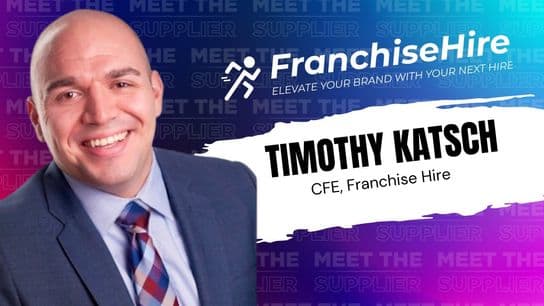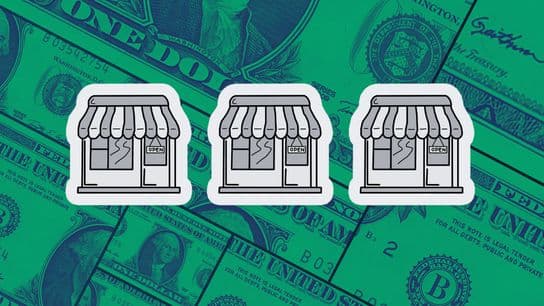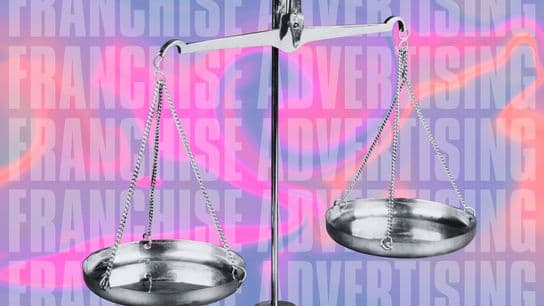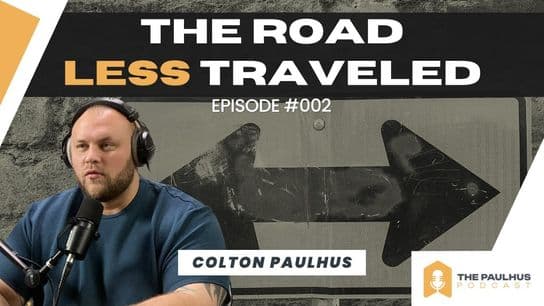Understanding the Financials Involved in a Franchise Purchase with Jeff Tacy of Franny’s Farmacy
Co-CEO of the experts of all things hemp breaks down just what to pay attention to when making a franchise purchase.
In 2017, Franny Tacy of Franny’s Farmacy became the first female hemp farmer in all of North Carolina. Her mission: Harvest an organic wellness product that is grown with the utmost care. Together, Franny and her husband, Jeff, founded Franny’s Farmacy to bring CBD to the masses. The CBD market alone could reach $20 billion by 2024, and the Tacys decided to set themselves apart in a saturated industry through franchising. As a leader of an emerging franchise concept in a booming industry, Jeff Tacy offered his insight to 1851 on the financials involved in a franchise purchase.
1851: What are some aspects of a franchise business everyone should look at before electing to invest?
Jeff Tacy: Proof of concept is always important, but this can be a challenge for newer businesses since they typically have a limited number of locations, and often, short histories of operation. This is even truer in cannabis since the industry is moving so fast. Determine if the business model is a good fit for your skillset and lifestyle, particularly when it comes to risk and the potential stress of managing a new business. I would recommend visiting existing locations to assess viability in your chosen market. Look for parallels in prospect and customer demographics. It's also important to meet the franchise management team, in person if you can, to verify the team's capacity to perform what they've committed to doing.
Trust your gut, but dig deep into any earnings claims. Be sure to have the financials presented to you reviewed for accuracy and replicability by a professional.
1851: Why do net worth and liquidity matter when making a franchise purchase?
Tacy: As a franchisor, franchisee net worth and liquidity are important so that we have a high level of confidence that the franchisee can afford the commitment they’re making and has the necessary funds to carry the business during the startup phase. It's important to be prepared for additional spend, whether it be a marketing budget to drive brand and store awareness or emergency funds to cover unplanned events or expenses. Entering into any business venture under-capitalized, franchise or not, is ill-advised and high-risk.
1851: Where could associated costs arise when making a franchise purchase?
Tacy: More often than not, the first question we're always asked is, "What is the franchise fee?" This is an interesting question because each franchisor will have a different set of variables that go into determining the franchise fee. In reality, the question should really be, "What is included in the franchise fee?"
At Franny's Farmacy, our franchise fee is more of a recovery fee, because it includes a variety of services: Intellectual property licensing; site selection; store design; hiring; training; construction support; vendor relations; ongoing operations support; and a lot more. We stress the thoroughness of our vertically integrated support. Franny's Farmacy royalties require 6% of gross sales plus 1% that gets pooled into the regional marketing budget. This royalty fee helps with additional ongoing support, training, product development and marketing designed to grow the franchise business—which, again, helps franchisees in the long run.
If you don't specifically know what's included in a franchise fee, odds are there could be hidden costs that catch you off guard. If you don't have the funds or the ability to acquire the funds for these fees—with some money left over—then you really shouldn't consider moving forward with that franchise.
1851: What does it take to break even?
Tacy: If you are partnering with a reputable franchisor, you should have confidence in what they present as a break-even scenario. It's as simple as taking the input costs, projecting gross and net profits, calculating the difference, and viola! You can project the financials. The best break-even opportunities will offer short timelines of one year or less.
That said, even if you're buying into a proven concept, your franchise is still a start-up business in a new market, with unique variables that need to be considered. Franchisees need to show up every day, work hard, perfect their business, and be willing to do whatever it takes to make their business successful. If they're not hands-on, they need to hire the right people that are to ensure a sound growth strategy.









